Johns Hopkins APL assembles first global map of lunar hydrogen
Friday, 22 July 2022 11:08 Using data collected over two decades ago, scientists from the Johns Hopkins Applied Physics Laboratory (APL) in Laurel, Maryland, have compiled the first complete map of hydrogen abundances on the Moon's surface. The map identifies two types of lunar materials containing enhanced hydrogen and corroborates previous ideas about lunar hydrogen and water, including findings that water likely played
Using data collected over two decades ago, scientists from the Johns Hopkins Applied Physics Laboratory (APL) in Laurel, Maryland, have compiled the first complete map of hydrogen abundances on the Moon's surface. The map identifies two types of lunar materials containing enhanced hydrogen and corroborates previous ideas about lunar hydrogen and water, including findings that water likely played Novel way to 'see' the first stars through the fog of the early Universe
Friday, 22 July 2022 11:08 A team of astronomers has developed a method that will allow them to 'see' through the fog of the early Universe and detect light from the first stars and galaxies.
The researchers, led by the University of Cambridge, have developed a methodology that will allow them to observe and study the first stars through the clouds of hydrogen that filled the Universe about 378,000 years after the B
A team of astronomers has developed a method that will allow them to 'see' through the fog of the early Universe and detect light from the first stars and galaxies.
The researchers, led by the University of Cambridge, have developed a methodology that will allow them to observe and study the first stars through the clouds of hydrogen that filled the Universe about 378,000 years after the B Terran Orbital Commissions Fleet Space CENTAURI-5 Payload
Friday, 22 July 2022 11:08 Terran Orbital Corporation (NYSE: LLAP), a global leader in satellite solutions, primarily serving the United States and Allied aerospace and defense industries, has announced the commissioning of the Fleet Space CENTAURI-5 payload. The payload provides Machine to Machine (M2M) and Internet of Things (IoT) connectivity to ground terminals and is an improved version of the payloads flown on CENTA
Terran Orbital Corporation (NYSE: LLAP), a global leader in satellite solutions, primarily serving the United States and Allied aerospace and defense industries, has announced the commissioning of the Fleet Space CENTAURI-5 payload. The payload provides Machine to Machine (M2M) and Internet of Things (IoT) connectivity to ground terminals and is an improved version of the payloads flown on CENTA How does reduced gravity affect astronauts' muscles and nerve responses
Friday, 22 July 2022 11:08 Among the many functions performed by skeletal muscles, an important one is maintaining our posture. If it weren't for these muscles, Earth's gravitational pull may make it difficult for us to stand and walk around. The group of muscles-mostly present in our limbs, back, and neck-which are responsible for maintaining our posture and allowing us to move against the force of gravity are rightly ca
Among the many functions performed by skeletal muscles, an important one is maintaining our posture. If it weren't for these muscles, Earth's gravitational pull may make it difficult for us to stand and walk around. The group of muscles-mostly present in our limbs, back, and neck-which are responsible for maintaining our posture and allowing us to move against the force of gravity are rightly ca Heatwaves and fires scorch Europe, Africa, and Asia
Friday, 22 July 2022 11:08 In June and July 2022, heatwaves struck Europe, North Africa, the Middle East, and Asia, as temperatures climbed above 40 degrees Celsius (104 degrees Fahrenheit) in places and broke many long-standing records.
The map above shows the surface air temperatures across most of the Eastern Hemisphere on July 13, 2022. It was produced by combining observations with a version of the Goddard Eart
In June and July 2022, heatwaves struck Europe, North Africa, the Middle East, and Asia, as temperatures climbed above 40 degrees Celsius (104 degrees Fahrenheit) in places and broke many long-standing records.
The map above shows the surface air temperatures across most of the Eastern Hemisphere on July 13, 2022. It was produced by combining observations with a version of the Goddard Eart Satellite Vu and SSTL commission satellite clone to double climate data collection
Friday, 22 July 2022 11:08 Satellite Vu, the UK satellite firm set to become the world's global thermometer from space, has commissioned a new clone of its original satellite in collaboration with Surrey Satellite Technology Ltd. (SSTL) to double its data collection capacity.
The deal sees SSTL begin construction on the second of Satellite Vu's Mid Wave Infra-Red (MWIR) thermal imaging satellite's which will collect
Satellite Vu, the UK satellite firm set to become the world's global thermometer from space, has commissioned a new clone of its original satellite in collaboration with Surrey Satellite Technology Ltd. (SSTL) to double its data collection capacity.
The deal sees SSTL begin construction on the second of Satellite Vu's Mid Wave Infra-Red (MWIR) thermal imaging satellite's which will collect Climate patterns thousands of miles away affect US bird migration
Friday, 22 July 2022 11:08 Every spring, migratory birds arrive in the continental United States from south and central America to breed. But precisely when they arrive each spring varies from year to year. In a NASA-led study published in the Bulletin of the American Meteorological Society, scientists have linked this variability to large-scale climate patterns originating thousands of miles away.
Migratory birds b
Every spring, migratory birds arrive in the continental United States from south and central America to breed. But precisely when they arrive each spring varies from year to year. In a NASA-led study published in the Bulletin of the American Meteorological Society, scientists have linked this variability to large-scale climate patterns originating thousands of miles away.
Migratory birds b NASA safety advisers warn ISS transition plans on “precarious trajectory”
Friday, 22 July 2022 08:59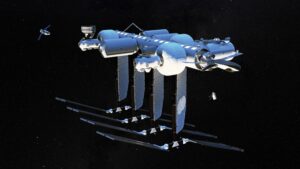
NASA’s safety advisers warn that the agency’s efforts to transition from the International Space Station to commercial space stations without a gap are on a “precarious trajectory.”
The post NASA safety advisers warn ISS transition plans on “precarious trajectory” appeared first on SpaceNews.
ESA showcases its space ambition at Farnborough airshow
Friday, 22 July 2022 08:49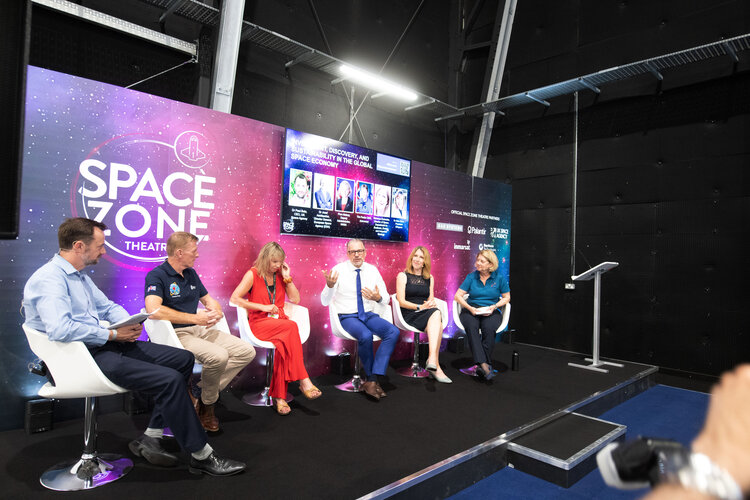
ESA’s efforts to ensure European citizens reap the benefits of space have been highlighted at a global aerospace event held in the UK.
Innovative data satellite enters commercial service
Friday, 22 July 2022 08:40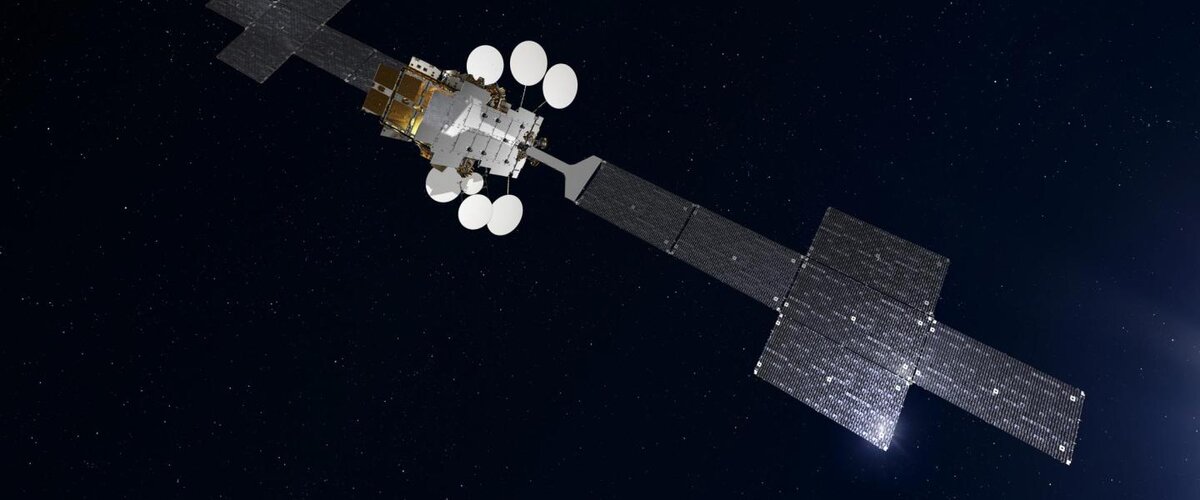
A large data-driven telecommunications satellite that uses innovative technology to keep cool as well as other innovations – developed under an ESA Partnership Project – has started its commercial service.
Mapping the Sky: Finding asteroids requires a combination of tools
Friday, 22 July 2022 08:05
Finding asteroids that threaten the Earth requires a combination of tools, not to mention money. Are we spending enough to avert disaster?
The post Mapping the Sky: Finding asteroids requires a combination of tools appeared first on SpaceNews.
Georgia spaceport land deal is off, site owner says
Friday, 22 July 2022 06:35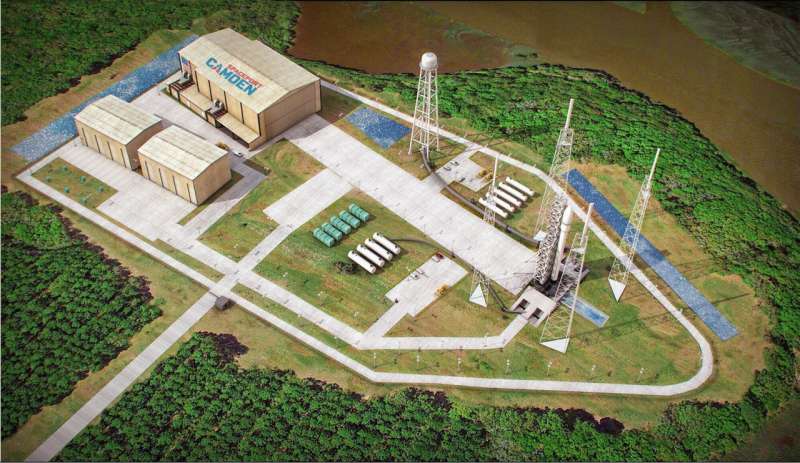
Draper wins NASA contract for farside lunar lander mission
Thursday, 21 July 2022 23:48
NASA awarded a contract to Draper to send three science instruments to the far side of the moon through a commercial payload delivery program.
The post Draper wins NASA contract for farside lunar lander mission appeared first on SpaceNews.
Crew Dragon mission delayed after booster damaged in transport
Thursday, 21 July 2022 20:55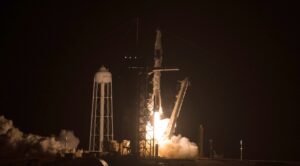
NASA is delaying the next commercial crew mission to the International Space Station by nearly a month after the Falcon 9 booster that will launch it was damaged during transport across the country for testing.
Senate NDAA directs independent review how the Space Force acquires technologies
Thursday, 21 July 2022 18:07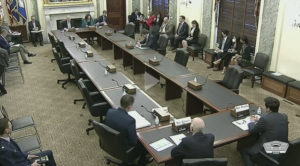
In its proposed 2023 National Defense Authorization Act, the Senate Armed Services Committee directs the Pentagon’s outside business advisors to review the acquisition process for space programs

